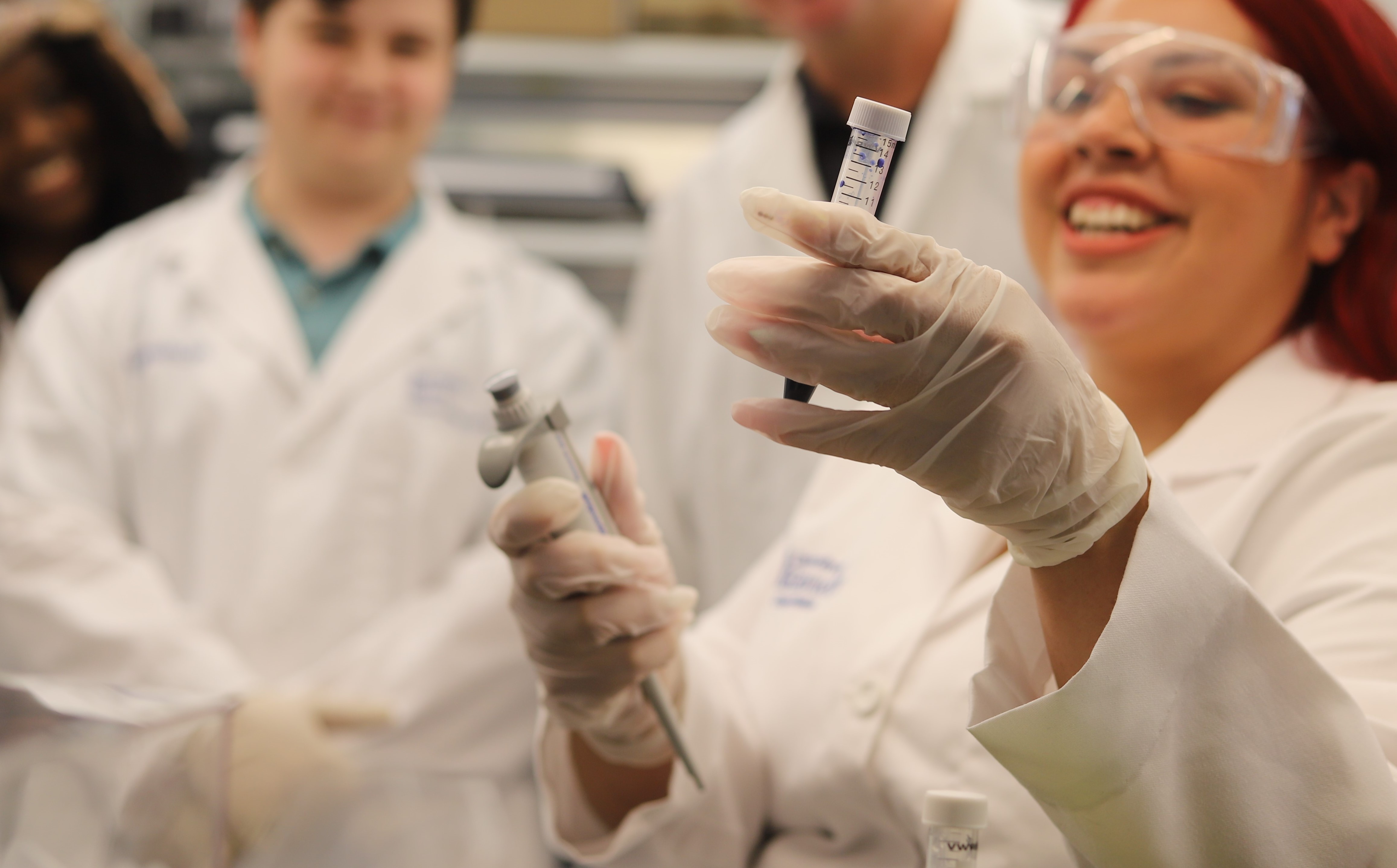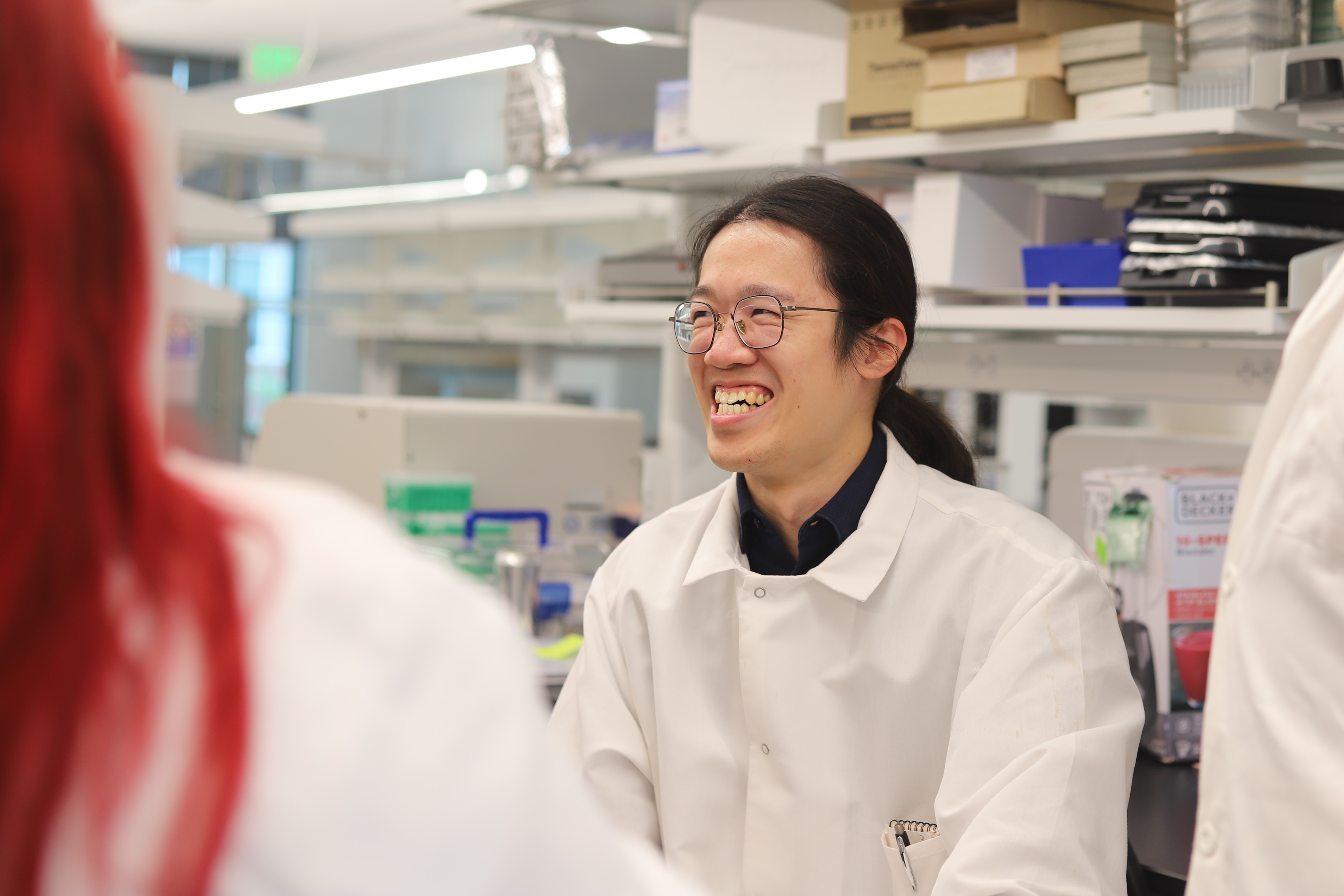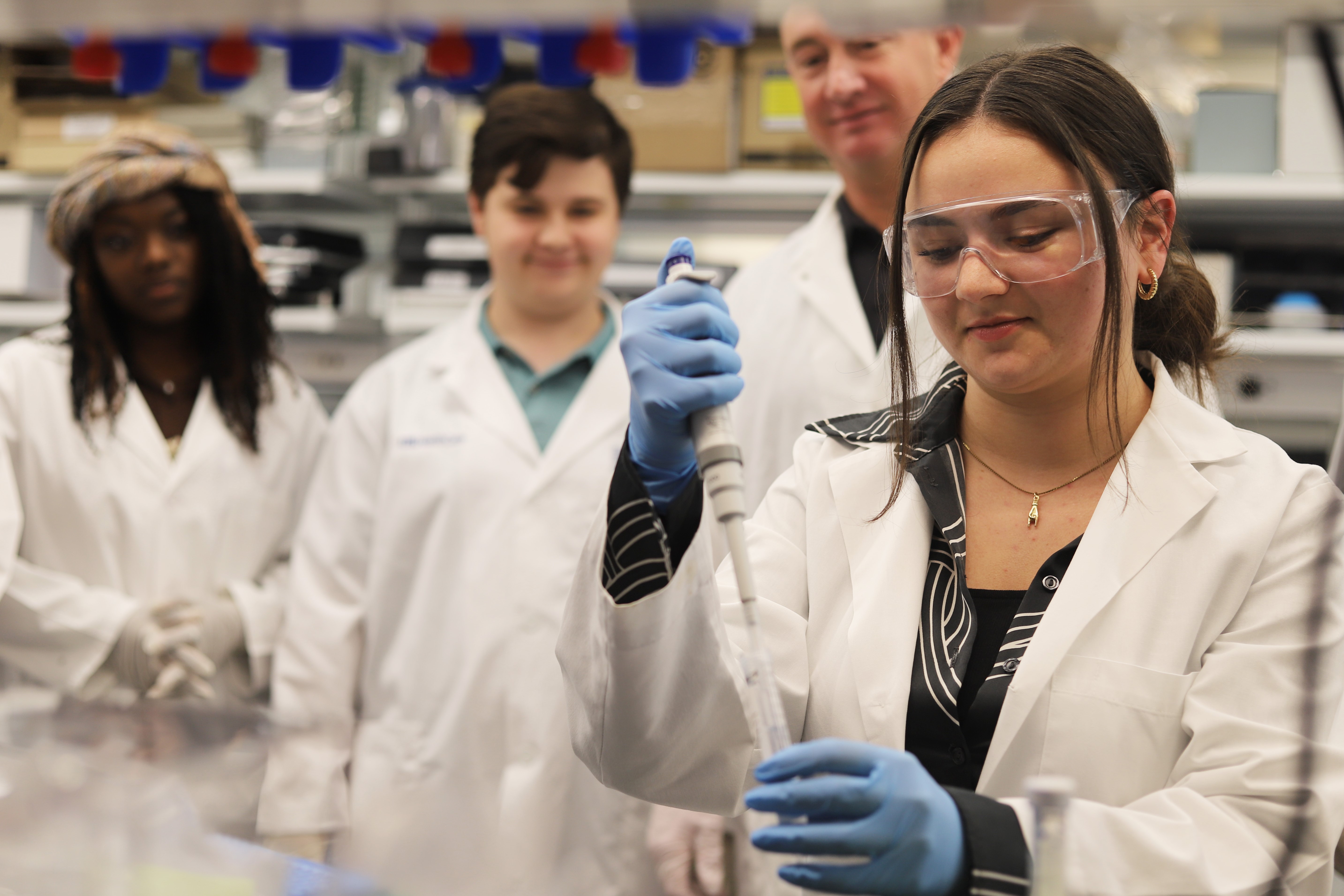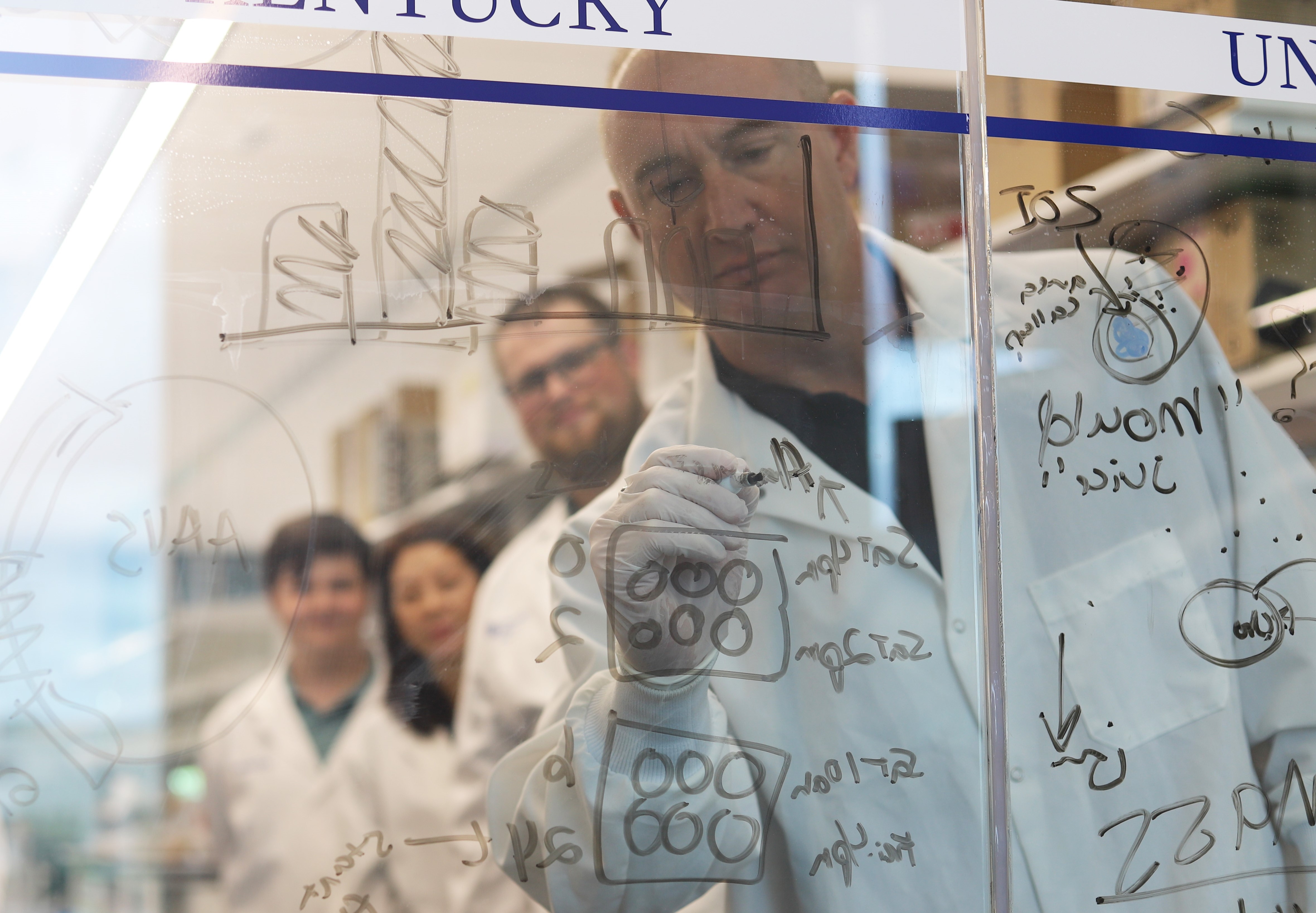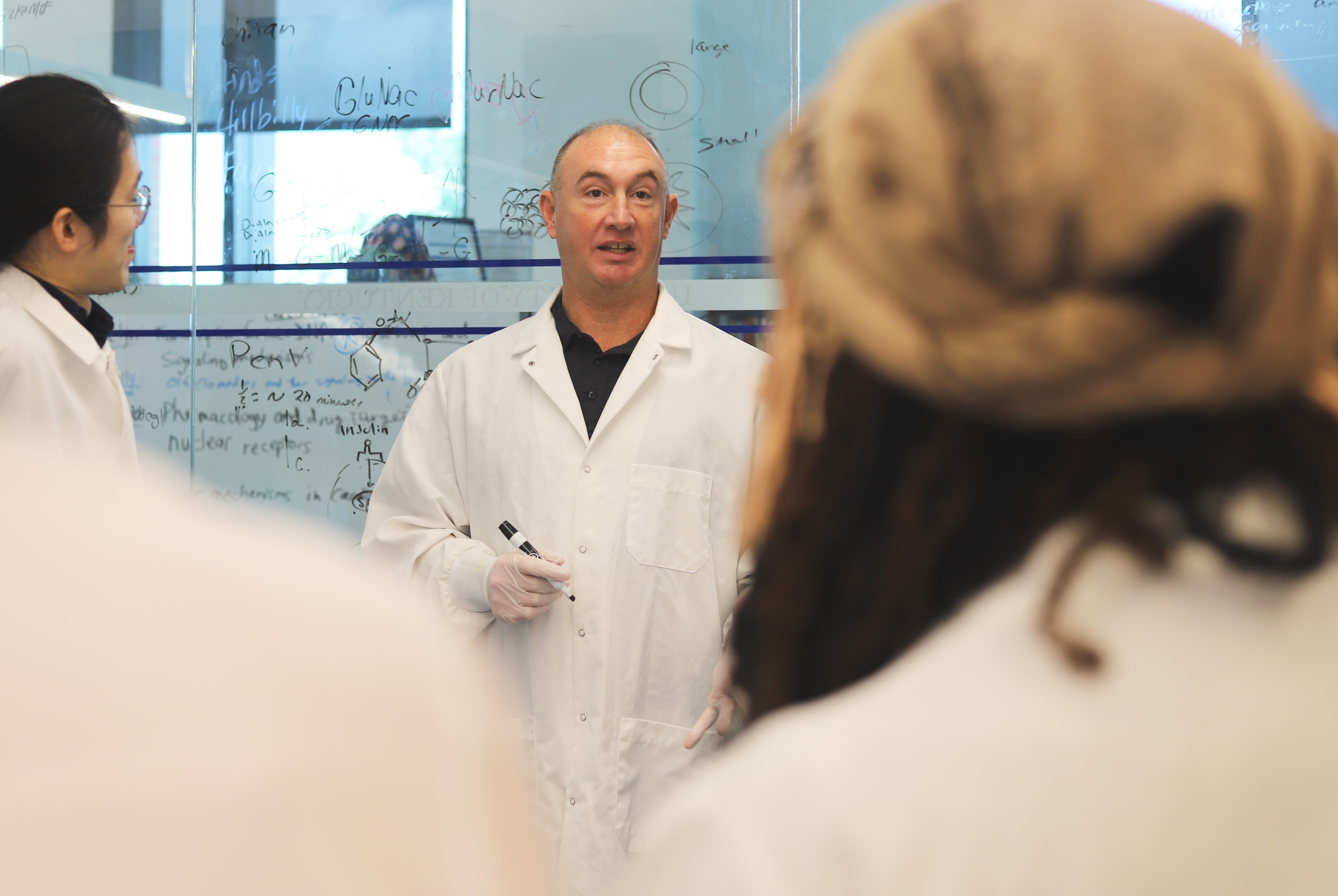Terry Hinds, PhD, joined the University of Kentucky College of Medicine faculty with an impressive record of groundbreaking research and state-of-the-art specialized technology. He is not only advancing scientific discoveries at UK but also helping more undergraduate students, graduate students, and postdoctoral fellows gain early experience with high-impact work.
Graduate student Zachary Kipp recognizes the worldwide impact of the research he has joined. In fact, he, along with the lab, attends biweekly meetings with international leaders in the study of liver disease.
Kipp followed Dr. Hinds from their previous institution, the University of Toledo College of Medicine, where he started working with Dr. Hinds in 2019. As a 2021-entering UK graduate student, Kipp has already been part of nine papers, with four first authors. And he was a major part of Dr. Hinds’ research on the potential use of bilirubin to treat human disease, published in Science magazine. Dr. Hinds discovered that bilirubin functions as a hormone, which has made a global impact. One of Kipp’s major projects is leading a study of bilirubin and its role in treating cardiometabolic diseases.
Kipp was recently selected for the highly prestigious National Institutes of Health (NIH) F31 Predoctoral Fellowship. His work for his fellowship studies bilirubin breakdown in the gut from bacteria, which form the molecule into urobilin, and then the body reabsorbs it. Kipp’s published first-author paper showed that urobilin is significantly higher in obese humans and is positively associated with fat accumulation and insulin resistance that leads to Type 2 diabetes.
“What’s really cool is we were the first to show that urobilin may cause diabetes and that there’s a sex difference,” Kipp said. In a paper he co-authored, the lab argued that urobilin could be causing an increase in the prevalence of diabetes and related diseases in women.
The Hinds Lab primarily studies obesity and diabetes, a Research Priority Area at UK. The lab uses the PamGene PamStation, an advanced instrument that allows the quantifications of more than 340 kinase pathway activities simultaneously. Dr. Hinds said it is the most advanced technology in the world for studying signaling pathways. When he joined the faculty, UK was the fourth site in the United States to utilize it.
“I think it’s probably 10 years ahead of the curve,” Dr. Hinds said, “and UK is on the forefront of that.”
He said that while traditional RNA and DNA sequencing can determine a person’s susceptibility to some diseases, this new technology measures the physiological actions of the proteins. It is the only instrument in the world that can actually determine what signaling pathways are altered, giving hints as to what medication a person may need to take. It also allows researchers to test therapies on patient samples inside the machine rather than on the patient.
This advanced equipment has led Dr. Hinds to collaborate with numerous researchers across UK studying addiction, cancer, and more.
- He and co-principal investigator Cassandra Gipson-Reichardt, PhD, associate professor of pharmacology and nutritional sciences, recently received a $2.65 million NIH grant. Using the PamGene PamStation, the scientists will study the impacts of xylazine on fentanyl effects.
- He received pilot funding from the Diabetes and Obesity Research Priority Area with Kevin Pearson, PhD, professor of pharmacology and nutritional sciences, to study sex differences in lean and obese male and female mice using the advanced PamGene technology.
- Using this technology, Dr. Hinds was awarded a pilot grant from the Markey Cancer Center to study racial differences in prostate cancer.
Dr. Hinds said there are not many limitations in his Lab. He teaches his trainees to think outside the box and holds thought-provoking sessions to expand their minds so they will be ready for the next discovery.
For learners, the experience is inspiring them to step out of their comfort zones. Graduate student Evelyn Bates said Dr. Hinds’ lab has pushed her beyond data analysis and into newer aspects of science like cell culture, molecular biology, and drug design.
“Dr. Hinds really stresses the importance of mastering a lot of trades so that we are foundationally strong scientists when we leave,” Bates said.
Dr. Hinds’ work has been recognized at UK and beyond. He was just named vice president for the state chapter of the American Physiological Society, was recently tenured, and was selected for 2022-2023 Faculty of the Year by the UK College of Medicine Department of Pharmacology and Nutritional Sciences, which are true testaments to his strong research and teaching activities.
Bates can attest to this. After her experience in the Hinds Lab, she knows she can become a principal investigator of her own one day. She is in the process of submitting a predoctoral fellowship, along with two other graduate students in the Hinds Lab, Wang-Hsin Lee (John) and Genesee Martinez.
All four of the graduate students in the Hinds Lab were selected for international research awards from the American Physiological Society meeting in Long Beach, Calif., in April. Bates and Martinez were also selected for a specialized session on “Hot Topics in Endocrinology and Metabolism” at the conference.
“Before I met Dr. Hinds, I wasn’t sure if I was cut out for academia,” Bates said. “He really just believed in me from the beginning that I could do it. He has built me up to the point where I think, just with how much I’ve been able to learn in the last year, I could really have a successful career.”
Research reported in this publication was supported by the National Institute of Diabetes and Digestive and Kidney Diseases of the National Institutes of Health under Award Numbers R01DK121797, R01DK112034, and R01DK121748, the National Institute on Drug Abuse of the National Institutes of Health under Award Number R01DA058933, and the National Cancer Institute of the National Institutes of Health under Award Number P30CA177558. The content is solely the responsibility of the authors and does not necessarily represent the official views of the National Institutes of Health.
